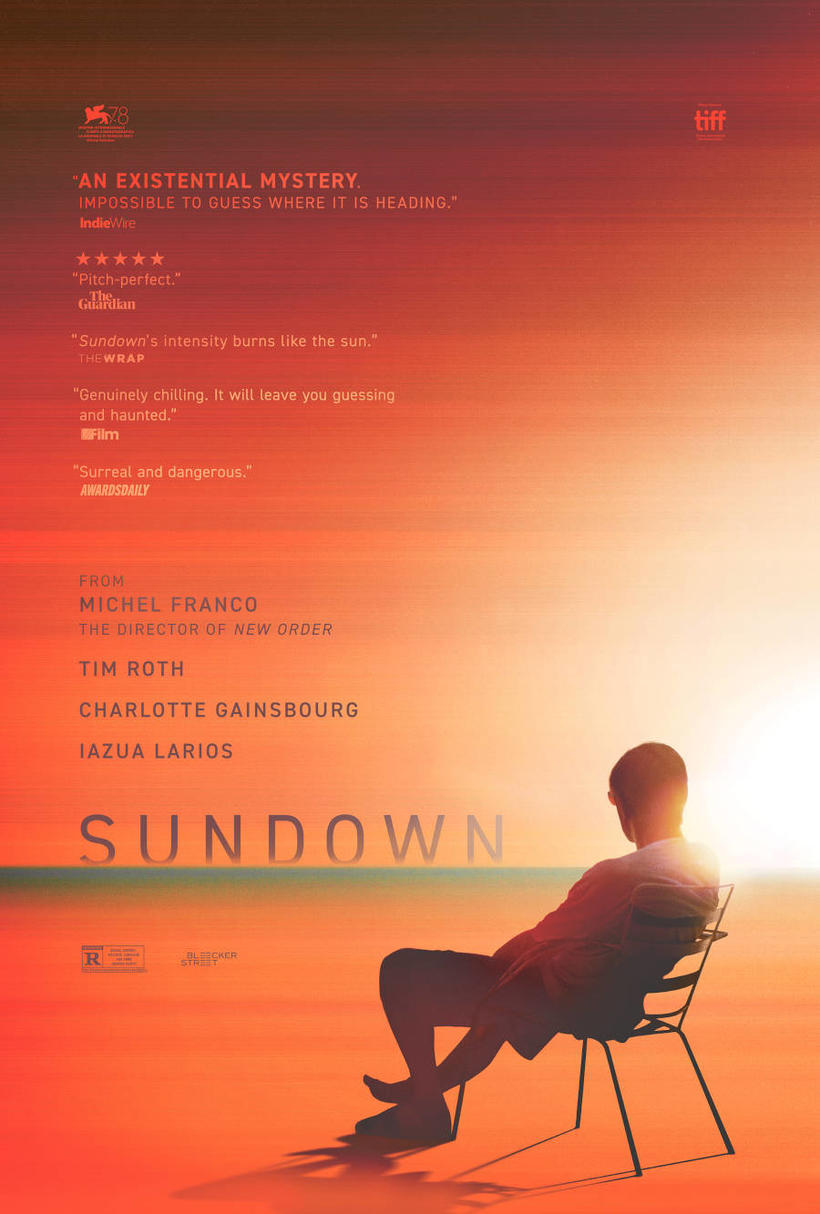
Shakespeare monologues are easy to come by since most, if not all, of the Bard’s plays, feature many monologues. The challenge is selecting the right Shakespeare monologue to rehearse acting techniques.
The best monologues for actors aren’t necessarily the most difficult but the most impactful to the arc of the tale.
Although he did receive patronage from the aristocracy, Shakespeare’s dialogue captured common men and women’s tone. The language of Elizabethan England, while explicitly formal, was also imbued with a wide variety of colloquialisms.
In that tradition, here are twenty Shakespeare monologues that aren’t worked on that often.
Shakespeare Monologues For Men
1. The Taming of the Shrew – Act III, Scene 2
Petruchio:
They shall go forward, Kate, at thy command.
Obey the bride, you that attend on her;
to the feast, revel and domineer,
Carouse full measure to her maidenhead;
Be mad and merry, or go hang yourselves.
But for my bonny Kate, she must with me.
Nay, look not big, nor stamp, nor stare, nor fret;
I will be master of what is mine own-
She is my goods, my chattels, she is my house,
My household stuff, my field, my barn,
My horse, my ox, my ass, my any thing,
And here she stands; touch her whoever dare;
I’ll bring mine action on the proudest he
That stops my way in Padua. Grumio,
Draw forth thy weapon; we are beset with thieves;
Rescue thy mistress, if thou be a man.
Fear not, sweet wench; they shall not touch thee, Kate;
I’ll buckler thee against a million.
2. Richard III – Act IV, Scene 6
King Richard:
As I intend to prosper and repent,
So thrive I in my dangerous attempt
Of hostile arms! myself myself confound!
Heaven and fortune bar me happy hours!
Day, yield me not thy light; nor, night, thy rest!
Be opposite all planets of good luck
To my proceedings, if, with pure heart’s love,
Immaculate devotion, holy thoughts,
I tender not thy beauteous princely daughter!
In her consists my happiness and thine;
Without her, follows to this land and me,
To thee, herself, and many a Christian soul,
Death, desolation, ruin and decay:
It cannot be avoided but by this;
It will not be avoided but by this.
Therefore, good mother,—I must can you so—
Be the attorney of my love to her:
Plead what I will be, not what I have been;
Not my deserts, but what I will deserve:
Urge the necessity and state of times,
And be not peevish-fond in great designs.
3. Othello – Act III, Scene 3
Othello:
As I intend to prosper and repent,
So thrive I in my dangerous attempt
Of hostile arms! myself myself confound!
Heaven and fortune bar me happy hours!
Day, yield me not thy light; nor, night, thy rest!
Be opposite all planets of good luck
To my proceedings, if, with pure heart’s love,
Immaculate devotion, holy thoughts,
I tender not thy beauteous princely daughter!
In her consists my happiness and thine;
Without her, follows to this land and me,
To thee, herself, and many a Christian soul,
Death, desolation, ruin and decay:
It cannot be avoided but by this;
It will not be avoided but by this.
Therefore, good mother,—I must can you so—
Be the attorney of my love to her:
Plead what I will be, not what I have been;
Not my deserts, but what I will deserve:
Urge the necessity and state of times,
And be not peevish-fond in great designs.
4. King Lear – Act II, Scene 4
Lear:
O, reason not the need! Our basest beggars
Are in the poorest thing superfluous.
Allow not nature more than nature needs,
Man’s life is cheap as beast’s. Thou art a lady:
If only to go warm were gorgeous,
Why, nature needs not what thou gorgeous wear’st
Which scarcely keeps thee warm. But, for true need- Y
ou heavens, give me that patience, patience I need!
You see me here, you gods, a poor old man,
As full of grief as age; wretched in both.
If it be you that stirs these daughters’ hearts
Against their father, fool me not so much
To bear it tamely; touch me with noble anger,
And let not women’s weapons, water drops,
Stain my man’s cheeks! No, you unnatural hags!
I will have such revenges on you both
That all the world shall- I will do such things-
What they are yet, I know not; but they shall be
The terrors of the earth! You think I’ll weep.
No, I’ll not weep.
I have full cause of weeping, but this heart
Shall break into a hundred thousand flaws
Or ere I’ll weep. O fool, I shall go mad!
5. The Merchant of Venice – Act III, Scene 2
Bassanio:
O sweet Portia,
Here are a few of the unpleasant’st words
That ever blotted paper! Gentle lady,
When I did first impart my love to you,
I freely told you, all the wealth I had
Ran in my veins, I was a gentleman;
And then I told you true: and yet, dear lady,
Rating myself at nothing, you shall see
How much I was a braggart. When I told you
My state was nothing, I should then have told you
That I was worse than nothing; for, indeed,
I have engaged myself to a dear friend,
Engaged my friend to his mere enemy,
To feed my means. Here is a letter, lady;
The paper as the body of my friend,
And every word in it a gaping wound,
Issuing life-blood. But is it true, Salerio?
Have all his ventures fail’d? What, not one hit?
From Tripolis, from Mexico and England,
From Lisbon, Barbary and India?
And not one vessel ‘scape the dreadful touch
Of merchant-marring rocks?
6. A Midsummer Night’s Dream – Act II, Scene 2
Puck:
Through the forest have I gone.
But Athenian found I none,
On whose eyes I might approve
This flower’s force in stirring love.
Night and silence..Who is here?
Weeds of Athens he doth wear:
This is he, my master said,
Despised the Athenian maid;
And here the maiden, sleeping sound,
On the dank and dirty ground.
Pretty soul! she durst not lie
Near this lack-love, this kill-courtesy.
Churl, upon thy eyes I throw
All the power this charm doth owe.
When thou wakest, let love forbid
Sleep his seat on thy eyelid:
So awake when I am gone;
For I must now to Oberon.
7. Macbeth – Act II, Scene 1
Macbeth:
Is this a dagger which I see before me,
The handle toward my hand? Come, let me clutch thee.
I have thee not, and yet I see thee still.
Art thou not, fatal vision, sensible
To feeling as to sight? or art thou but
A dagger of the mind, a false creation,
Proceeding from the heat-oppressed brain?
I see thee yet, in form as palpable
As this which now I draw.
Thou marshall’st me the way that I was going;
And such an instrument I was to use.
Mine eyes are made the fools o’ the other senses,
Or else worth all the rest; I see thee still,
And on thy blade and dudgeon gouts of blood,
Which was not so before. There’s no such thing:
It is the bloody business which informs
Thus to mine eyes. Now o’er the one halfworld
Nature seems dead, and wicked dreams abuse
The curtain’d sleep; witchcraft celebrates
Pale Hecate’s offerings, and wither’d murder,
Alarum’d by his sentinel, the wolf,
Whose howl’s his watch, thus with his stealthy pace.
With Tarquin’s ravishing strides, towards his design
Moves like a ghost. Thou sure and firm-set earth,
Hear not my steps, which way they walk, for fear
Thy very stones prate of my whereabout,
And take the present horror from the time,
Which now suits with it. Whiles I threat, he lives:
Words to the heat of deeds too cold breath gives.
[A bell rings]
I go, and it is done; the bell invites me.
Hear it not, Duncan; for it is a knell
That summons thee to heaven or to hell.
8. Troilus and Cressida – Act V, Scene 2
Troilus:
This she? no, this is Diomed’s Cressida:
If beauty have a soul, this is not she;
If souls guide vows, if vows be sanctimonies,
If sanctimony be the gods’ delight,
If there be rule in unity itself,
This is not she. O madness of discourse,
That cause sets up with and against itself!
Bi-fold authority! where reason can revolt
Without perdition, and loss assume all reason
Without revolt: this is, and is not, Cressid.
Within my soul there doth conduce a fight
Of this strange nature that a thing inseparate
Divides more wider than the sky and earth,
And yet the spacious breadth of this division
Admits no orifex for a point as subtle
As Ariachne’s broken woof to enter.
Instance, O instance! strong as Pluto’s gates;
Cressid is mine, tied with the bonds of heaven:
Instance, O instance! strong as heaven itself;
The bonds of heaven are slipp’d, dissolved, and loosed;
And with another knot, five-finger-tied,
The fractions of her faith, orts of her love,
The fragments, scraps, the bits and greasy relics
Of her o’er-eaten faith, are bound to Diomed.
9. Twelfth Night, Or What You Will – Act IV, Scene 3
Sebastian:
This is the air; that is the glorious sun;
This pearl she gave me, I do feel’t and see’t;
And though ’tis wonder that enwraps me thus,
Yet ’tis not madness. Where’s Antonio, then?
I could not find him at the Elephant:
Yet there he was; and there I found this credit,
That he did range the town to seek me out.
His counsel now might do me golden service;
For though my soul disputes well with my sense,
That this may be some error, but no madness,
Yet doth this accident and flood of fortune
So far exceed all instance, all discourse,
That I am ready to distrust mine eyes
And wrangle with my reason that persuades me
To any other trust but that I am mad
Or else the lady’s mad; yet, if ’twere so,
She could not sway her house, command her followers,
Take and give back affairs and their dispatch
With such a smooth, discreet and stable bearing
As I perceive she does: there’s something in’t
That is deceiveable. But here the lady comes.
10. Julius Caesar – Act III, Scene 1
Antony:
O, pardon me, thou bleeding piece of earth,
That I am meek and gentle with these butchers!
Thou art the ruins of the noblest man
That ever lived in the tide of times.
Woe to the hand that shed this costly blood!
Over thy wounds now do I prophesy,—
Which, like dumb mouths, do ope their ruby lips,
To beg the voice and utterance of my tongue—
A curse shall light upon the limbs of men;
Domestic fury and fierce civil strife
Shall cumber all the parts of Italy;
Blood and destruction shall be so in use
And dreadful objects so familiar
That mothers shall but smile when they behold
Their infants quarter’d with the hands of war;
All pity choked with custom of fell deeds:
And Caesar’s spirit, ranging for revenge,
With Ate by his side come hot from hell,
Shall in these confines with a monarch’s voice
Cry ‘Havoc,’ and let slip the dogs of war;
That this foul deed shall smell above the earth
\With carrion men, groaning for burial.
[Enter a Servant]
You serve Octavius Caesar, do you not?
Any student of theatre would do well to rehearse from these monologues for men.
Shakespeare Monologues For Women
1. A Midsummer Night’s Dream – Act III, Scene 2
Hermia:“O spite! O hell! I see you all are bent
To set against me for your merriment:
If you were civil and knew courtesy,
You would not do me thus much injury.
Can you not hate me, as I know you do,
But you must join in souls to mock me too?
If you were men, as men you are in show,
You would not use a gentle lady so;
To vow, and swear, and superpraise my parts,
When I am sure you hate me with your hearts.
You both are rivals, and love Hermia;
And now both rivals, to mock Helena:
A trim exploit, a manly enterprise,
To conjure tears up in a poor maid’s eyes
With your derision! none of noble sort
Would so offend a virgin, and extort
A poor soul’s patience, all to make you sport.”
Age: 20s 30s Teens
Gender: Female
From: Monologues From Plays
Type: Classical
One minute monologue: No
2. The Merchant of Venice, Act I, Scene 2
Portia: If to do were as easy as to know what were good to do, chapels had been churches and poor men’s cottages princes’ palaces. It is a good divine that follows his own instructions: I can easier teach twenty what were good to be done, than be one of the twenty to follow mine own teaching. The brain may devise laws for the blood, but a hot temper leaps o’er a cold decree: such a hare is madness the youth, to skip o’er the meshes of good counsel the cripple. But this reasoning is not in the fashion to choose me a husband. O me, the word ‘choose!’ I may neither choose whom I would nor refuse whom I dislike; so is the will of a living daughter curbed by the will of a dead father. Is it not hard, Nerissa, that I cannot choose one nor refuse none?
Age: 20s 30s
Gender: Female
From: Monologues From Plays
Type: Classical
One minute monologue: No
3. Troilus and Cressida – Act I, Scene 2
Cressida: Words, vows, gifts, tears, and love’s full sacrifice,
He offers in another’s enterprise;
But more in Troilus thousandfold I see
Than in the glass of Pandar’s praise may be;
Yet hold I off. Women are angels, wooing:
Things won are done; joy’s soul lies in the doing.
That she beloved knows nought that knows not this:
Men prize the thing ungain’d more than it is:
That she was never yet that ever knew
Love got so sweet as when desire did sue.
Therefore this maxim out of love I teach:
Achievement is command; ungain’d, beseech:
Then though my heart’s content firm love doth bear,
Nothing of that shall from mine eyes appear.
Age: 20s 30s
Gender: Female
From: Monologues From Plays
Type: Classical
One minute monologue: Yes
4. Macbeth – Act IV, Scene 3 (this one is popular but we love it)
Lady Macbeth: The raven himself is hoarse
That croaks the fatal entrance of Duncan
Under my battlements. Come, you spirits
That tend on mortal thoughts, unsex me here,
And fill me from the crown to the toe top-full
Of direst cruelty! make thick my blood;
Stop up the access and passage to remorse,
That no compunctious visitings of nature
Shake my fell purpose, nor keep peace between
The effect and it! Come to my woman’s breasts,
And take my milk for gall, you murdering ministers,
Wherever in your sightless substances
You wait on nature’s mischief! Come, thick night,
And pall thee in the dunnest smoke of hell,
That my keen knife see not the wound it makes,
Nor heaven peep through the blanket of the dark,
To cry ‘Hold, hold!’
Age: 20s 30s 40s 50s
Gender: Female
From: Monologues From Plays
Type: Classical
One minute monologue: No
5. Twelfth Night, Or What You Will – Act III, Scene 1
Olivia: O, what a deal of scorn looks beautiful
In the contempt and anger of his lip!
A murderous guilt shows not itself more soon
Than love that would seem hid: love’s night is noon.
Cesario, by the roses of the spring,
By maidhood, honour, truth and every thing,
I love thee so, that, maugre all thy pride,
Nor wit nor reason can my passion hide.
Do not extort thy reasons from this clause,
For that I woo, thou therefore hast no cause,
But rather reason thus with reason fetter,
Love sought is good, but given unsought better.
Age: 20s 30s 40s
Gender: Female
From: Monologues From Plays
Type: Classical
One minute monologue: Yes
6. King Lear – Act I, Scene 4
Goneril: This admiration, sir, is much o’ th’ savour
Of other your new pranks. I do beseech you
To understand my purposes aright.
As you are old and reverend, you should be wise.
Here do you keep a hundred knights and squires;
Men so disorder’d, so debosh’d, and bold
That this our court, infected with their manners,
Shows like a riotous inn. Epicurism and lust
Make it more like a tavern or a brothel
Than a grac’d palace. The shame itself doth speak
For instant remedy. Be then desir’d
By her that else will take the thing she begs
A little to disquantity your train,
And the remainder that shall still depend
To be such men as may besort your age,
Which know themselves, and you.
Age: 20s 30s 40s
Gender: Male
From: Monologues From Plays
Type: Classical
One minute monologue: No
7. Julius Caesar – Act II, Scene 2
Calpurnia: Caesar, I never stood on ceremonies,
Yet now they fright me. There is one within,
Besides the things that we have heard and seen,
Recounts most horrid sights seen by the watch.
A lioness hath whelped in the streets;
And graves have yawn’d, and yielded up their dead;
Fierce fiery warriors fought upon the clouds,
In ranks and squadrons and right form of war,
Which drizzled blood upon the Capitol;
The noise of battle hurtled in the air,
Horses did neigh, and dying men did groan,
And ghosts did shriek and squeal about the streets.
O Caesar! these things are beyond all use,
And I do fear them.
Age: 20s 30s 40s
Gender: Female
From: Monologues From Plays
Type: Classical
One minute monologue: Yes
8. The Taming of the Shrew – Act IV, Scene 3
Kate: The more my wrong, the more his spite appears.
What, did he marry me to famish me?
Beggars that come unto my father’s door
Upon entreaty have a present alms;
If not, elsewhere they meet with charity;
But I, who never knew how to entreat,
Nor never needed that I should entreat,
Am starv’d for meat, giddy for lack of sleep;
With oaths kept waking, and with brawling fed;
And that which spites me more than all these wants-
He does it under name of perfect love;
As who should say, if I should sleep or eat,
‘Twere deadly sickness or else present death.
I prithee go and get me some repast;
I care not what, so it be wholesome food.
Age: 20s 30s
Gender: Female
From: Monologues From Plays
Type: Classical
One minute monologue: Yes
9. Othello – Act I, Scene 3 (This one too)
Desdemona: That I did love the Moor to live with him,
My downright violence and storm of fortunes
May trumpet to the world: my heart’s subdued
Even to the very quality of my lord:
I saw Othello’s visage in his mind,
And to his honour and his valiant parts
Did I my soul and fortunes consecrate.
So that, dear lords, if I be left behind,
A moth of peace, and he go to the war,
The rites for which I love him are bereft me,
And I a heavy interim shall support
By his dear absence. Let me go with him.
Age: 20s 30s 40s 50s
Gender: Female
From: Monologues From Plays
Type: Classical
One minute monologue: Yes
10. Richard III – Act IV, Scene 4
Margaret: Bear with me; I am hungry for revenge,
And now I cloy me with beholding it.
Thy Edward he is dead, that stabb’d my
Edward: Thy other Edward dead, to quit my Edward;
Young York he is but boot, because both they
Match not the high perfection of my loss:
Thy Clarence he is dead that kill’d my Edward;
And the beholders of this tragic play,
The adulterate Hastings, Rivers, Vaughan, Grey,
Untimely smother’d in their dusky graves.
Richard yet lives, hell’s black intelligencer,
Only reserved their factor, to buy souls
And send them thither: but at hand, at hand,
Ensues his piteous and unpitied end:
Earth gapes, hell burns, fiends roar, saints pray.
To have him suddenly convey’d away.
Cancel his bond of life, dear God, I prey,
That I may live to say, The dog is dead!
Age: 20s 30s 40s 50s
Gender: Female
From: Monologues From Plays
Type: Classical
One minute monologue: No
Please check out more monologues for women here .










